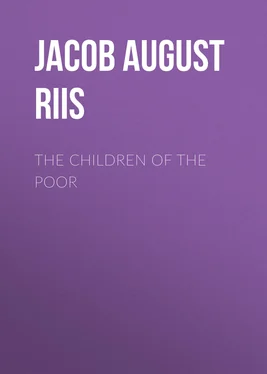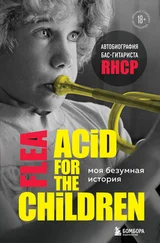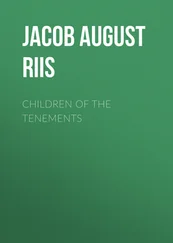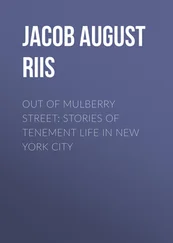Jacob August Riis - The Children of the Poor
Здесь есть возможность читать онлайн «Jacob August Riis - The Children of the Poor» — ознакомительный отрывок электронной книги совершенно бесплатно, а после прочтения отрывка купить полную версию. В некоторых случаях можно слушать аудио, скачать через торрент в формате fb2 и присутствует краткое содержание. Жанр: foreign_prose, sociology_book, foreign_antique, на английском языке. Описание произведения, (предисловие) а так же отзывы посетителей доступны на портале библиотеки ЛибКат.
- Название:The Children of the Poor
- Автор:
- Жанр:
- Год:неизвестен
- ISBN:нет данных
- Рейтинг книги:4 / 5. Голосов: 1
-
Избранное:Добавить в избранное
- Отзывы:
-
Ваша оценка:
- 80
- 1
- 2
- 3
- 4
- 5
The Children of the Poor: краткое содержание, описание и аннотация
Предлагаем к чтению аннотацию, описание, краткое содержание или предисловие (зависит от того, что написал сам автор книги «The Children of the Poor»). Если вы не нашли необходимую информацию о книге — напишите в комментариях, мы постараемся отыскать её.
The Children of the Poor — читать онлайн ознакомительный отрывок
Ниже представлен текст книги, разбитый по страницам. Система сохранения места последней прочитанной страницы, позволяет с удобством читать онлайн бесплатно книгу «The Children of the Poor», без необходимости каждый раз заново искать на чём Вы остановились. Поставьте закладку, и сможете в любой момент перейти на страницу, на которой закончили чтение.
Интервал:
Закладка:
“Pietro,” I said, with a sudden yearning to know, “did you ever laugh?”
The boy glanced from the baby to me with a wistful look.
“I did wonst,” he said, quietly, and went on his way. And I would gladly have forgotten that I ever asked the question; even as Pietro had forgotten his laugh.
CHAPTER III.
IN THE GREAT EAST SIDE TREADMILL
IF the sightseer finds less to engage his interest in Jewtown than in the Bend, outside of the clamoring crowds in the Chasir—the Pig-market—he will discover enough to enlist his sympathies, provided he did not leave them behind when he crossed the Bowery. The loss is his own then. There is that in the desolation of child-life in those teeming hives to make the shrivelled heart ache with compassion for its kind and throb with a new life of pain, enough to dispel some prejudices that are as old as our faith, and sometimes, I fear, a good deal stronger. The Russian exile adds to the offence of being an alien and a disturber of economic balances the worse one of being a Jew. Let those who cannot forgive this damaging fact possess their souls in patience. There is some evidence that the welcome he has received in those East Side tenements has done more than centuries of persecution could toward making him forget it himself.
The Italian who comes here gravitates naturally to the oldest and most dilapidated tenements in search of cheap rents, which he doesn’t find. The Jew has another plan, characteristic of the man. He seeks out the biggest ones and makes the rent come within his means by taking in boarders, “sweating” his flat to the point of police intervention. That that point is a long way beyond human decency, let alone comfort, an instance from Ludlow Street, that came to my notice while writing this, quite clearly demonstrates. The offender was a tailor, who lived with his wife, two children, and two boarders in two rooms on the top floor. [It is always the top floor; in fifteen years of active service as a police reporter I have had to climb to the top floor five times for every one my business was further down, irrespective of where the tenement was or what kind of people lived in it. Crime, suicide, and police business generally seem to bear the same relation to the stairs in a tenement that they bear to poverty itself. The more stairs the more trouble. The deepest poverty is at home in the attic.] But this tailor; with his immediate household, including the boarders, he occupied the larger of the two rooms. The other, a bedroom eight feet square, he sublet to a second tailor and his wife; which couple, following his example as their opportunities allowed, divided the bedroom in two by hanging a curtain in the middle, took one-half for themselves and let the other half to still another tailor with a wife and child. A midnight inspection by the sanitary police was followed by the arrest of the housekeeper and the original tailor, and they were fined or warned in the police-court, I forget which. It doesn’t much matter. That the real point was missed was shown by the appearance of the owner of the house, a woman, at Sanitary Headquarters, on the day following, with the charge against the policeman that he was robbing her of her tenants.
The story of inhuman packing of human swarms, of bitter poverty, of landlord greed, of sweater slavery, of darkness and squalor and misery, which these tenements have to tell, is equalled, I suppose, nowhere in a civilized land. Despite the prevalence of the boarder, who is usually a married man, come over alone the better to be able to prepare the way for the family, the census 3 3 The census referred to in this chapter was taken for a special purpose, by a committee of prominent Hebrews, in August, 1890, and was very searching.
shows that fifty-four per cent. of the entire population of immigrant Jews were children, or under age. Every steamer has added to their number since, and judging from the sights one sees daily in the office of the United Hebrew Charities, and from the general appearance of Ludlow Street, the proportion of children has suffered no decrease. Let the reader who would know for himself what they are like, and what their chances are, take that street some evening from Hester Street down and observe what he sees going on there. Not that it is the only place where he can find them. The census I spoke of embraced forty-five streets in the Seventh, Tenth, and Thirteenth Wards. But at that end of Ludlow Street the tenements are taller and the crowds always denser than anywhere else. Let him watch the little pedlars hawking their shoe-strings, their matches, and their penny paper-pads, with the restless energy that seems so strangely out of proportion to the reward it reaps; the half-grown children staggering under heavy bundles of clothes from the sweater’s shop; the ragamuffins at their fretful play, play yet, discouraged though it be by the nasty surroundings—thank goodness, every year brings its Passover with the scrubbing brigade to Ludlow Street, and the dirt is shifted from the houses to the streets once anyhow; if it does find its way back, something may be lost on the way—the crowding, the pushing for elbow-room, the wails of bruised babies that keep falling down-stairs, or rolling off the stoop, and the raids of angry mothers swooping down upon their offspring and distributing thumps right and left to pay for the bruises, an eye for an eye, a tooth for a tooth. Whose eye, whose tooth, is of less account in Jewtown than that the capital put out bears lawful interest in kind. What kind of interest may society some day expect to reap from Ghettos like these, where even the sunny temper of childhood is soured by want and woe, or smothered in filth? It is a long time since I have heard a good honest laugh, a child’s gleeful shout, in Ludlow Street. Angry cries, jeers, enough. They are as much part of the place as the dirty pavements; but joyous, honest laughs, like soap and water, are at a premium there.
But children laugh because they are happy. They are not happy in Ludlow Street. Nobody is except the landlord. Why should they be? Born to toil and trouble, they claim their heritage early and part with it late. There is even less time than there is room for play in Jewtown, good reason why the quality of the play is poor. There is work for the weakest hands, a step for the smallest feet in the vast tread-mill of these East Side homes. A thing is worth there what it will bring. All other considerations, ambitions, desires, yield to that. Education pays as an investment, and therefore the child is sent to school. The moment his immediate value as a worker overbalances the gain in prospect by keeping him at his books, he goes to the shop. The testimony of Jewish observers, who have had quite unusual opportunities for judging, is that the average age at which these children leave school for good is rather below twelve than beyond it, by which time their work at home, helping their parents, has qualified them to earn wages that will more than pay for their keep. They are certainly on the safe side in their reckoning, if the children are not. The legal age for shop employment is fourteen. On my visits among the homes, workshops, and evening schools of Jewtown, I was always struck by the number of diminutive wage-earners who were invariably “just fourteen.” It was clearly not the child which the tenement had dwarfed in their case, but the memory or the moral sense of the parents.
If, indeed, the shop were an exchange for the home; if the child quit the one upon entering the other, there might be little objection to make; but too often they are two names for the same thing; where they are not, the shop is probably preferable, bad as that may be. When, in the midnight hour, the noise of the sewing-machine was stilled at last, I have gone the rounds of Ludlow and Hester and Essex Streets among the poorest of the Russian Jews, with the sanitary police, and counted often four, five, and even six of the little ones in a single bed, sometimes a shake-down on the hard floor, often a pile of half-finished clothing brought home from the sweater, in the stuffy rooms of their tenements. In one I visited very lately, the only bed was occupied by the entire family lying lengthwise and crosswise, literally in layers, three children at the feet, all except a boy of ten or twelve, for whom there was no room. He slept with his clothes on to keep him warm, in a pile of rags just inside the door. It seemed to me impossible that families of children could be raised at all in such dens as I had my daily and nightly walks in. And yet the vital statistics and all close observation agree in allotting to these Jews even an unusual degree of good health. The records of the Sanitary Bureau show that while the Italians have the highest death-rate, the mortality in the lower part of the Tenth Ward, of which Ludlow Street is the heart and type, is the lowest in the city. Even the baby death-rate is very low. But for the fact that the ravages of diphtheria, croup, and measles run up the record in the houses occupied entirely by tailors—in other words, in the sweater district, where contagion always runs riot 4 4 Dr. Roger S. Tracy’s report of the vital statistics for 1891 shows that, while the general death-rate of the city was 25.96 per 1,000 of the population—that of adults (over five years) 17.13, and the baby death-rate (under five years) 93.21—in the Italian settlement in the west half of the Fourteenth Ward the record stood as follows: general death-rate, 33.52; adult death-rate, 16.29; and baby death-rate, 150.52. In the Italian section of the Fourth Ward it stood: general death-rate, 34.88; adult death-rate, 21.29; baby death-rate 119.02. In the sweaters district in the lower part of the Tenth Ward the general death rate was 16.23; the adult death rate, 7.59; and the baby death rate 61.15. Dr. Tracy adds: “The death-rate from phthisis was highest in houses entirely occupied by cigarmakers (Bohemians), and lowest in those entirely occupied by tailors. On the other hand, the death-rates from diphtheria and croup and measles were highest in houses entirely occupied by tailors.”
—the Tenth Ward would seem to be the healthiest spot in the city, as well as the dirtiest and the most crowded. The temperate habits of the Jew and his freedom from enfeebling vices generally must account for this, along with his marvellous vitality. I cannot now recall ever having known a Jewish drunkard. On the other hand, I have never come across a Prohibitionist among them. The absence of the one renders the other superfluous.
Интервал:
Закладка:
Похожие книги на «The Children of the Poor»
Представляем Вашему вниманию похожие книги на «The Children of the Poor» списком для выбора. Мы отобрали схожую по названию и смыслу литературу в надежде предоставить читателям больше вариантов отыскать новые, интересные, ещё непрочитанные произведения.
Обсуждение, отзывы о книге «The Children of the Poor» и просто собственные мнения читателей. Оставьте ваши комментарии, напишите, что Вы думаете о произведении, его смысле или главных героях. Укажите что конкретно понравилось, а что нет, и почему Вы так считаете.












